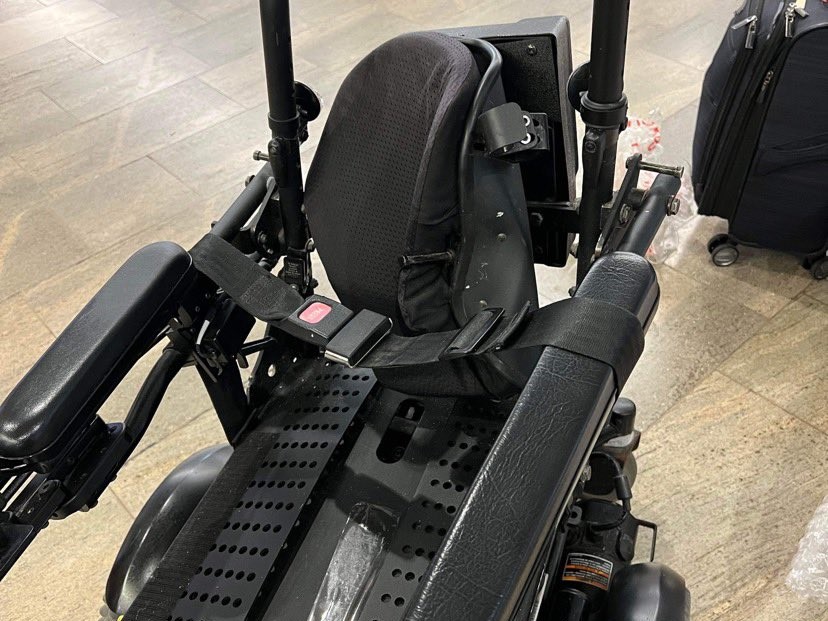Last week, disability advocate Maayan Ziv’s worst nightmare came true, when she landed in Israel with her customized electric wheelchair mangled and unusable. Ironically, the purpose of her trip was to speak on the importance of accessibility and inclusion at a conference, a plan that was shattered upon arrival in the hands of the popular airline, Air Canada.
Sadly, nightmare scenarios such as these are a regular occurrence for thousands of travelers with disabilities, with many reports on the mishandling of assistive devices, which are treated no differently than baggage. “I feel like people with disabilities aren’t seen. Like we’re treated like luggage. Like cattle,” shared Ziv in an Instagram video, expressing her frustration and anger at the mistreatment.
With most mobility devices being highly customized to individual needs and medical conditions, the consequences of damage are grave, including a loss of mobility and independence and serious health concerns. Those health concerns can range from increased risk of pressure injuries and physical pain leading to prolonged injuries from not having access to one’s customized seating that comes with personalized mobility devices. The social isolation, frustration and overall distress that people with disabilities are forced to face when travelling are equally concerning.
The disability community is growing tired of the eerily similar headlines month after month, detailing damaged wheelchairs, people being dropped while transferred, stripped of agency and independence and in some cases, dying as a result of negligence when it comes to handling wheelchairs. It was just last year that 51 year old Engracia Figueroa died after a hospitalization that resulted from injuries sustained after United Airlines broke her wheelchair.
All of these stories are dehumanizing, painting pictures of experiences that no traveler should have to face in 2022. Airlines are failing to understand the gravity of the problem, offering solutions that are just as appalling as the incidents – like a $300 voucher offered to Ziv for her $30, 000 wheelchair. Mobility devices are essential for traveling with a disability and airlines need to take action to ensure they are handled with utmost care and safety.
“The fact that airlines have yet to figure out how to properly protect wheelchairs during travel is hugely inappropriate and honestly disgusting!” says Peter Athanasopoulous, SCIO’s Director of Public Policy. “Where is the accountability? Why does this continue to happen? Airlines need to prioritize solutions regarding this matter immediately. The Government of Canada needs to enforce this.”
Indeed, airlines need to improve service to people with disabilities, ensuring safe and reliable travel for all customers.


